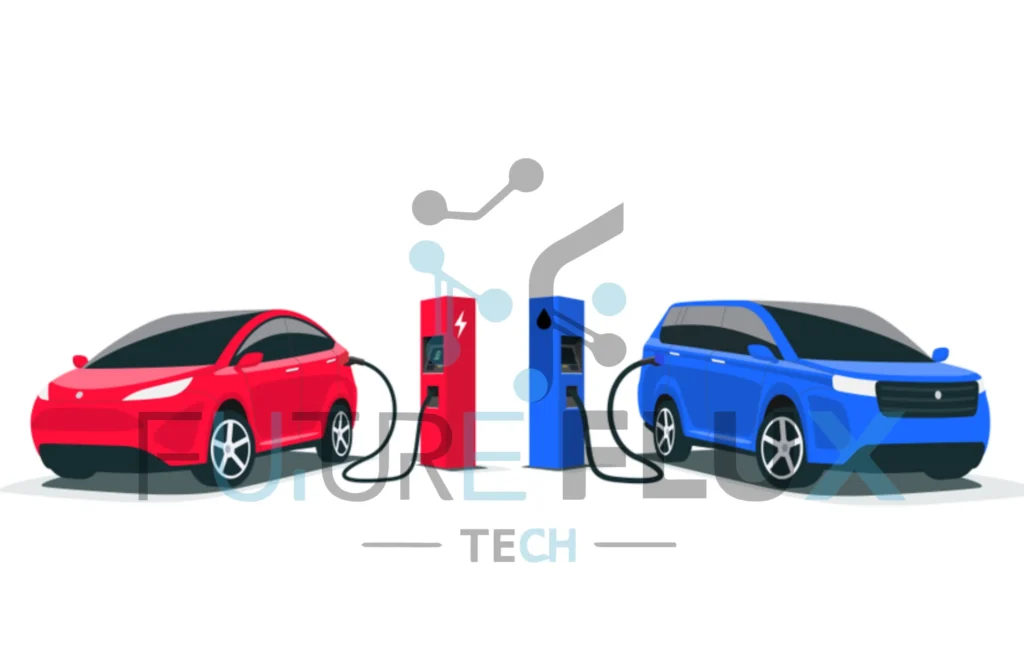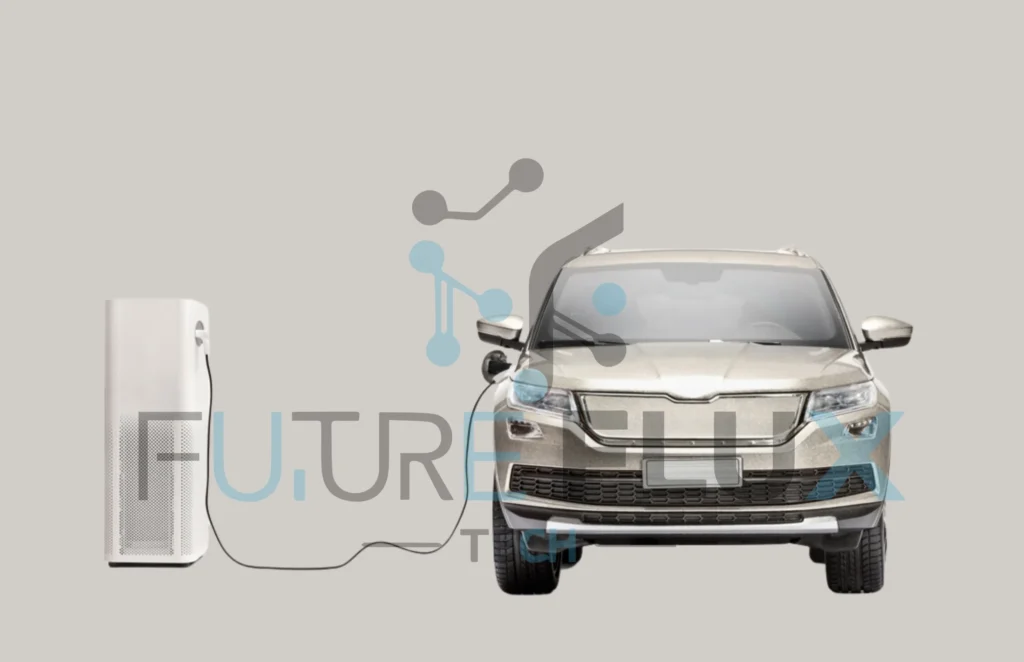Electric cars have been constantly compared to their gas counterparts. Better in performance? Heavier in size? How to differentiate myths from facts? In terms of size, EVs are lighter than gas cars. However, the answer is rather shocking. Former South Carolina governor Nikki Haley raised concerns regarding Electric Vehicles Safety and the nation’s fragile infrastructure. She said that EVs are so heavy that the roads and bridges cannot bear their weight for much longer. Shocking. Three days later, Sen. Marco Rubio, R-Fla., sent a letter to the Securities and Exchange Commission concerning EVs. He said that EVs are a disaster for the country’s transport infrastructure. Why are electric cars heavier than gas cars? Is it the battery size? Growth in EV sales? Can you reduce the weight of an EV? Let’s discuss some facts and myths.
Why are Electric Cars Heavier than Gas Cars?

EVs may have the upper hand on gas cars in terms of environment compatibility and better use of resources. However, they are heavier than gas-powered cars. EVs can weigh hundreds to thousands of pounds more than their gas siblings, making them a safety concern. Gas cars have combustion engines, which are lighter than batteries. Therefore, they are still in the safe zone. Most EV Weight Issues arise from its heavy batteries. They weigh a few more pounds than the engine of a gas car.
Moreover, automakers have started producing massive SUVs and E-trucks, raising EV Safety Concerns. These vehicles already weigh thousands of pounds. Adding heavier batteries may add fuel to the fire. The need for SUVs keeps growing as EVs become popular among the general public. However, this will give rise to Electric Car Weight Safety problems. Producing lightweight EVs can be challenging as the demand for heavier ones increases.
Furthermore, there’s an ongoing range of anxiety among EV owners. They are tired of recharging their cars after every 200 miles or so. They want longer ranges, which require bigger batteries.
The body of an EV does not add to its weight. Most EVs are made with lightweight materials to prevent speed drag. Some companies have already understood the Impact of EV Weight on Safety, therefore, they are trying to compensate for EV weight with a lighter frame. In short, longer-range EVs are possibly heavier than short-range EVs.
Are Electric Cars a Threat to Road Safety?
The current infrastructure could be more stable than it seems. A report by the American Society for Civil Engineers (ASCE) shows that the US stands at a ‘C’ concerning infrastructure. However, that’s not all; most roads in the US are graded ‘D’ due to their poor conditions. Unlike lighter EVs, heavier electric cars threaten road safety due to possible road damage. With the rise in electric SUVs and pick-up trucks, the US can face a lot of infrastructure damage. Heavier EVs are lethal in case of a collision. The battery might explode which raises several EVs and Crash Safety concerns.
Moreover, EV owners do not pay gas taxes meaning that not a single penny goes into road repair. Experts speculate that EVs are as much of a culprit as heavy trucks. Furthermore, some rural roads and bridges may need to be stronger to withstand EV weight, which increases Safety Problems with EVs. Heavier EVs may decrease the lifespan of bridges, which calls for frequent repairs. This can be a financial burden and raise a question regarding the authenticity of EVs. Bridges are not the only infrastructure that is in danger. EVs can damage parking lots. Experts warn that road fatalities in the US are already skyrocketing. Adding heavier EVs to the equation might endanger US Safety Standards for EVs as the fatality rates increase. Moreover, owners are concerned about whether their garages can handle EV weight.
How to Reduce the Weight of Electric Cars?

Heavier EVs are becoming popular among common folks. A rise in EV demand can risk road safety due to their heavy weight. However, companies are finding solutions to reduce their weight. To coincide with EV Safety Regulations, they can take the following measures.
1- Energy-dense batteries
The main factor that increases EV weight is its heavy-duty battery. Most EVs run on lithium-ion batteries which are already at a max. Gradual changes may improve the energy density of these batteries. However, finding complete alternatives like solid-state batteries is also a good solution. Replacing the liquid substrate in lithium batteries may reduce EV Weight Issues as the batteries become lighter and more energy-dense. These changes will not affect their performance.
2- Reduced range anxiety
Older EVs offered lower ranges due to lighter batteries. However, people were satisfied until 2015. New flashy models made it into the market stirring, up some enthusiasm among EV owners. They decided they had it enough with their low-range EVs. They started craving for longer-range EVs. Therefore, a spike in demand forced the companies to increase EV battery sizes. This raised EV Safety Concerns as heavier batteries increased the weight of the EVs. Finding ways to reduce range anxiety amongst consumers can lower the amount of heavy EVs.
3- EV market range
Creating a variety of EVs can help reduce their weight. Confused are we? The reason why there’s so much emphasis on the word ‘variety’ is because EVs were meant to be affordable. However, they became a luxury tool for the rich and tech enthusiasts. Companies must create a low-to-mid EV market range that offers a little something for everyone. Following Heavy Electric Vehicles Safety concerns, creating smaller models can easily reduce the load of heavier EVs on the road. Consumers can buy affordable EVs that offer similar functions as their heavier siblings.
4- Public charging networks
How do charging stations reduce the weight of an EV? A question that might seem ridiculous but still valid. Imagine a charging station placed at 50 miles or less would decrease the need to refill your car every 100 miles. Who needs a long-range EV when you can refill your car anywhere? Since EVs and Crash Safety go hand-in-hand, having short-range EVs is a blessing. They are lighter, which reduces road damage. Moreover, creating charging networks helps increase EV sales as they symbolize convenience.
5- Heavy Vehicle Tax
Another method of reducing heavier EVs on the road is adding a penalty to them. Consumers will be reluctant to buy heavier EVs and go for smaller models. However, this method might hurt EV sales and reduce public demand. Companies should adopt this method if the Impact of EV Weight on Safety truly concerns them. In some countries like France, ‘SUV taxes’ have been implemented to decrease vehicle load. These taxes do not apply to EVs, which further increases the need for an EV-related penalty. Such penalties may benefit the nation economically and keep the infrastructure in good shape.
Conclusion
EV sales have taken a huge toll since 2015. More people are interested in these electric-powered vehicles. EVs are certainly the best alternatives to gas cars; however, they have some drawbacks. They run on batteries that are more efficient than combustion engines. However, they are the reason why electric cars are heavier than gas cars, as they often have a liquid substrate. Heavier EVs threaten road safety as they damage the already weakened infrastructure. Most electric vehicles are heavier than gas cars but lighter than SUVs.
Moreover, E-SUVs are heavier than gas-powered SUVs. Companies are trying to create lighter batteries to reduce EV Weight Issues significantly. What’s more? Penalizing heavy EVs can reduce their numbers on the road as more people will buy smaller EVs.
What makes EVs such an amazing innovation? Has BMW stopped making electric cars? Learn more by visiting our blog.
I’m Waqas, an electric vehicle enthusiast and tech writer with over 6 years of experience covering the EV industry. I write in-depth articles, comparisons, and reviews to help readers understand the fast-evolving world of electric mobility. From battery technology to EV launches and charging trends, I aim to make complex EV topics simple, engaging, and informative for everyday drivers and curious readers alike.





